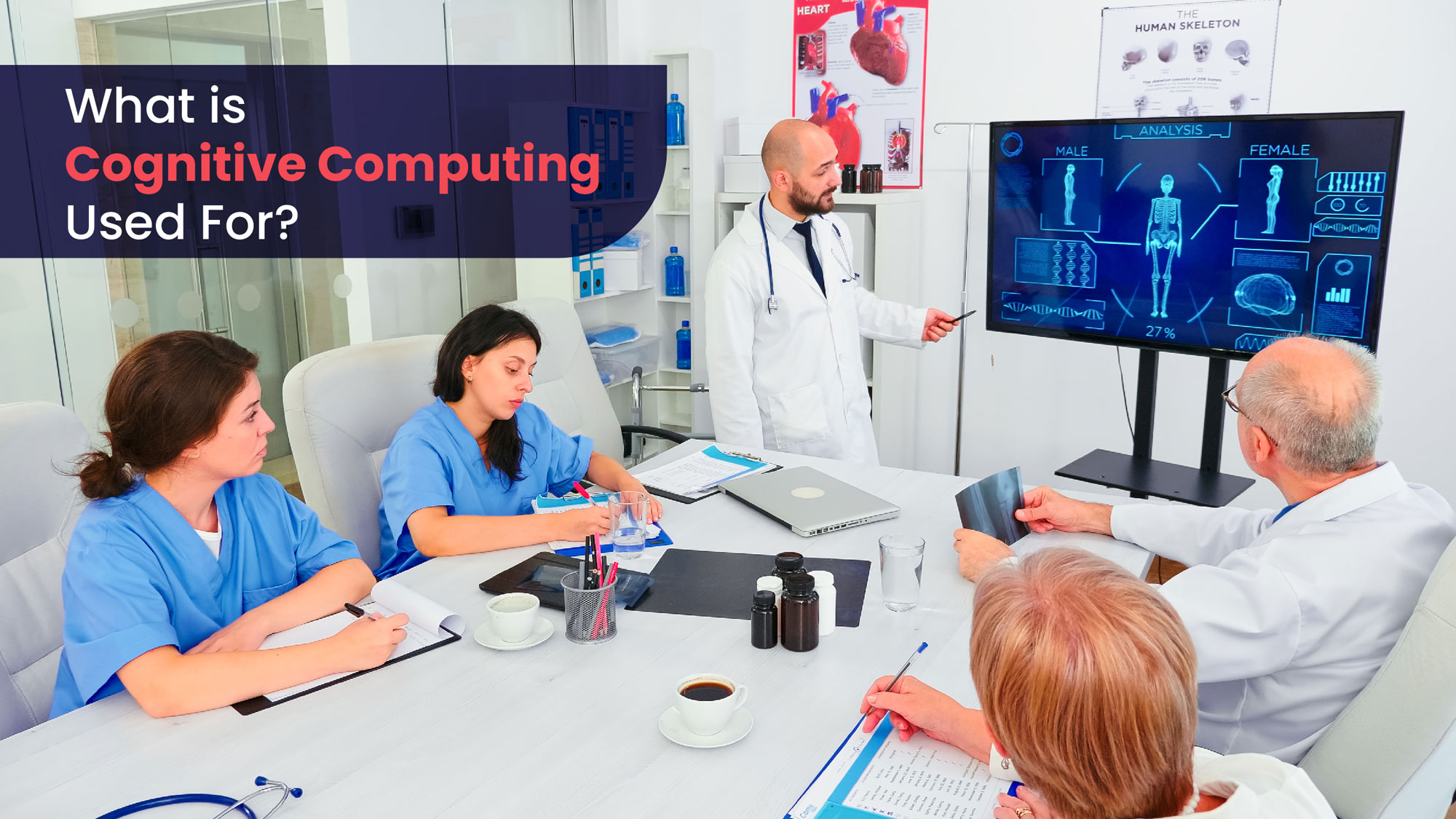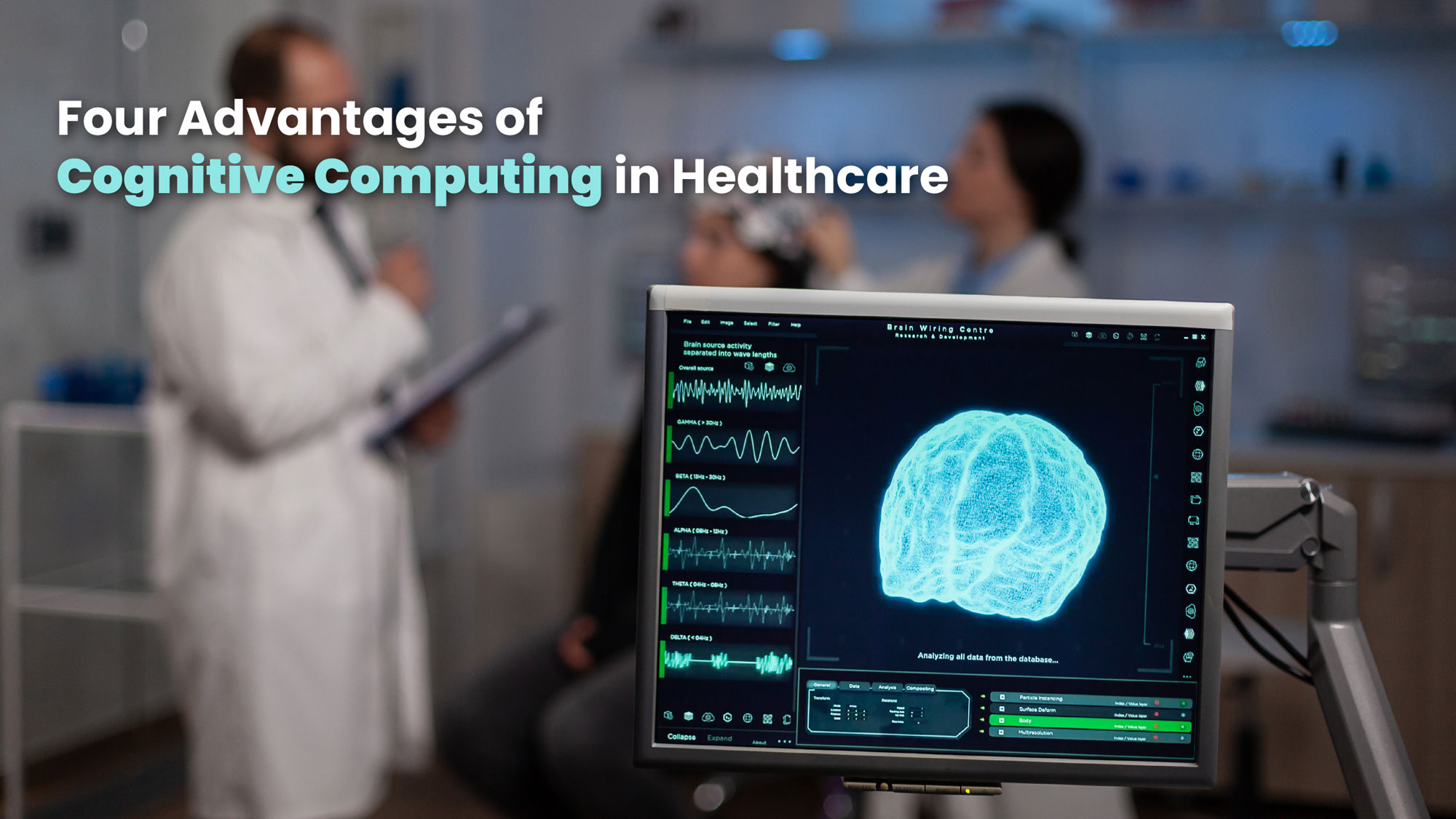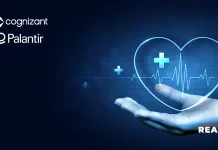Cognitive computing systems are capable of simulating human thought processes by utilizing a computerized model. Cognitive computing has a promising future for the healthcare industry it has brought about many opportunities that can transform the worldwide healthcare delivery system. Healthcare professionals and providers are now increasingly adopting cognitive systems to boost patient outcomes, improve the overall quality of care, and make better and more informed decisions.
Today, as there is a massive boost in the use of cloud computing and Big Data, the implementation of cognitive computing has become more affordable and accessible. While cloud computing is widely accessible to the healthcare sector at large, it has immense potential for other industries as well. Using the various aspects of machine learning technology, cognitive computing is moving ahead to expand the knowledge of healthcare professionals in designing personalized treatment modules.
It also has a huge role in enhancing patient engagement and improving access to healthcare services. This has motivated researchers to further explore the potential of cognitive systems to make clinical trials more comprehensive and beneficial. However, it is first important to understand the advantages of cognitive technology.
What is Cognitive Computing Used For?
Cognitive computing is used in many industries as it makes work easier. Let’s discuss how different sectors integrate cognitive computing into their system.

Banking and Finance
Cognitive computing in the finance and banking sectors will help to enhance operational efficiency and customer engagement, and of course, it will bring growth in revenue. Customers will receive personalized recommendations from cognitive banking, which will assist in choosing personalized investment strategies depending on the customer’s risk tolerance. Additionally, it will foster a more individualized relationship between the financial institution and the client by treating each one as an individual and putting their needs first.
Power and Energy
To find, produce, and distribute crude oil and its byproducts, the oil and gas sector is under intense cost pressure. They also lack skilled engineers and other technical personnel. To combat these issues, technologies that use cognitive computing process large amounts of data to support decisions and learn from the outcomes. This technology will assist the organization in making a number of crucial decisions for the future, such as finding economically viable oil wells and ways to improve the efficiency of present power plants. It will also provide existing power businesses with a competitive edge.
Healthcare
Cognitive computing has guided medical personnel in choosing better methods of therapy, increased their effectiveness, and improved patient outcomes. It is a self-learning system that depends on real-time patient information, medical records, and other data. It uses machine learning algorithms, data mining techniques, image recognition, and natural language processing. The system immediately evaluates a massive quantity of data to provide precise answers to specific problems. In order to improve human decision-making, cognitive computing in healthcare connects the operations of humans and machines where computers and the human brain genuinely overlap. This will enable medical practitioners to diagnose and treat patients more accurately.
Education
The way the education sector has operated will alter as an outcome of cognitive computing. Some of the improvements are already beginning to be implemented. It will impact the way that schools, colleges, and universities now operate and aid in giving pupils individualized study materials.
A cognitive assistant can give students individualized instruction, lead them through their coursework, and aid them in grasping specific key ideas at their own pace. Additionally, depending on their interests, it can help students choose the right courses. It can serve as a career advisor. In addition to assisting kids, cognitive computing will also assist teachers, support staff, and administrative personnel in providing improved services, creating student reports and feedback, and more.
Four Advantages of Cognitive Computing in Healthcare
Here are four significant advantages of implementing cognitive computing in the healthcare industry.
1. Faster and Better Medical Research
The healthcare industry has massive amounts of data to be analyzed. This data can be easily analyzed only by systematically collecting and cross-referencing the data. With cognitive computing systems medical records and data can be stored accurately and kept up-to-date. This can further help medical practitioners to be gain proper insights and make a plan to deliver the best quality patient care.
This also means that cognitive technology can seamlessly provide individualized treatment plans. The perks of using cognitive technology don’t end here, it can also help discover new insights into relationships among genes, proteins, pathways, etc.
2. Enhanced Daily Processes
By implementing cognitive computing technology practitioners can optimize their clinical and operational efficiency. Utilizing the right technology combined with optimum healthcare delivery services can enable healthcare professionals to analyze and summarize patient data. This is beneficial to ensure there is enough time for hospital staff to take care of the patients.
3. Promotes Healthier Patient Behaviors
As cognitive technology can simulate the human thought process via a computerized model, it can also prove beneficial to determine important findings, predicting diseases, etc. Most importantly, cognitive technology can help in prescribing healthy habits for patients by alerting them of any potential illness and convincing them to take better care of themselves.
4. Helps in Improving Customer Interaction
As technologies develop and progress further there will be a rise in Robotic Process Automation (RPA). According to tech experts, RPA can highly enrich doctor-patient relationships. It can provide relevant and contextual information without patients having to physically interact with the staff members.
Cognitive computing technology can provide personalized care to patients with greater diagnostic certainty. It is a great decision assistance tool for healthcare professionals. The application of cognitive computing in healthcare can provide great opportunities to practice the best treatment options.
Conclusion
Cognitive computing in the healthcare industry is very promising. It offers a way for more personalized medical treatment by incorporating the storage of basic and valuable information about the patient, such as the patient’s history, the environment they live in, and more importantly, their genetics. This technology will help numerous doctors to keep track of their patient’s data. Cognitive computing is a revolutionary development that can aid all medical practitioners across the globe.




